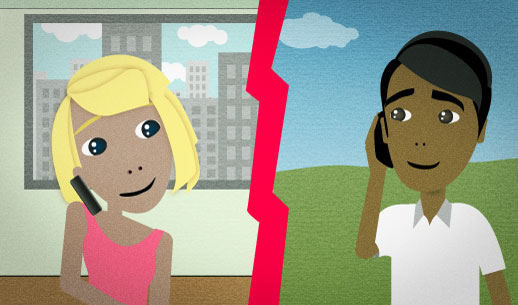“OK, well, I'll let you go.”
You've been talking with an old friend on the telephone. You want to finish the conversation, so you say this.
OK, well, I'll let you go.
Want Video and Sound? Follow us on YouTube

Well
There are several uses for the word "well". One important use is to show that you are ready to finish a conversation. The end of a conversation might go something like this:
A: Well, I look forward to working with you.
B: Yeah, me too.
A: See you around.
B: Bye.
Some other examples of "well" used to end a conversation are:
I'll let you go.
You can say this to end a telephone conversation. Say it when you've finished everything you wanted to say and when the other person isn't talking.
A: Well... I guess I should get back to work.
B: OK, I'll let you go then. It was great talking to you.
When you say "I'll let you go", it suggests that you feel like the other person is very busy, and that you're selfishly using up their time by talking to them for so long on the telephone. So "I'll let you go" is a polite-sounding phrase.
On the other hand, you wouldn't use this phrase with someone who's much higher in status than you, like someone who's interviewing you for a job.
OK.
One of the ways that English speakers use "OK" is to signal a change in the flow of conversation.
For example, before you begin a meeting everyone might be making small talk and chatting about different topics. To start the serious business part of the meeting, you can start with "OK".
You can also use "OK" when you want to:
- start a new topic of conversation
-
announce a decision
-
ask other people to make a decision
-
end a conversation
